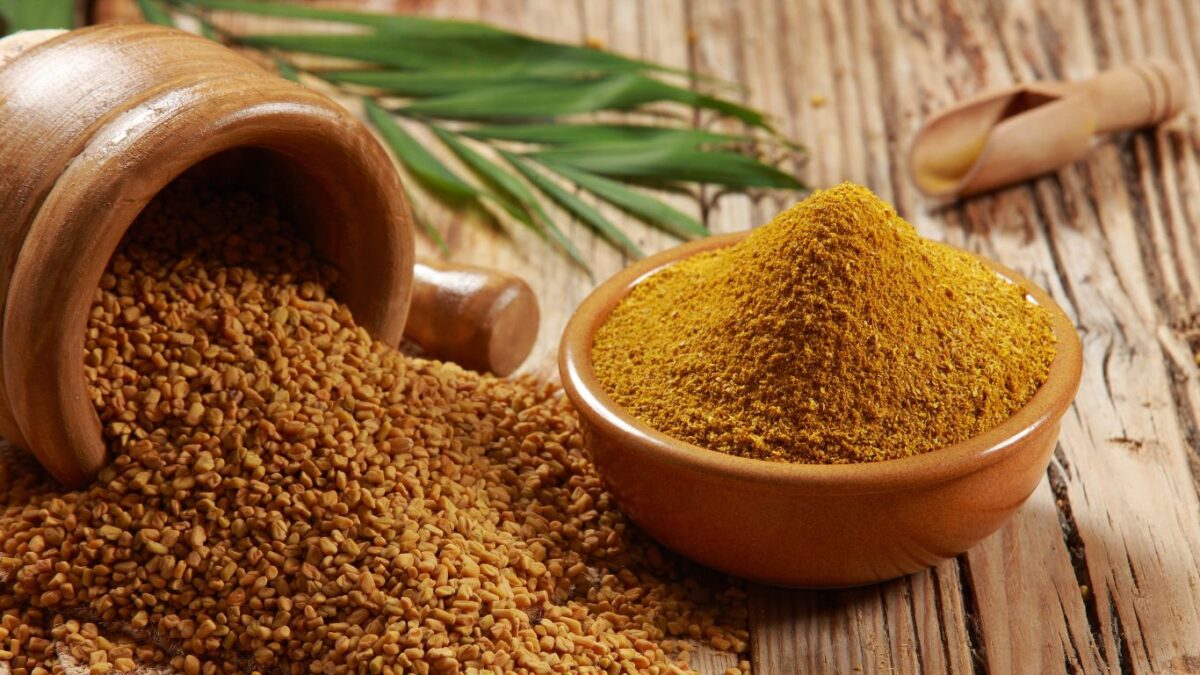Fenugreek and Lentil Soup Delight
This Fenugreek and Lentil Soup Delight is one of our easy recipes for menopause. This soup is designed with menopausal women in mind, as it includes fenugreek, which is known for its potential benefits in alleviating some menopausal symptoms. Fenugreek contains phytoestrogens, which are plant compounds that can mimic the hormone estrogen in the body, helping to balance hormonal fluctuations that occur during menopause. You can read more about the benefits of fenugreek to menopausal women here.
Moreover, this recipe is easy to prepare, making it a practical choice for women going through menopause who may not have the energy or time for complicated cooking. With a relatively short prep time of just 10 minutes and a total cooking time of 30 minutes, it’s a convenient and nutritious option for those looking to incorporate menopause-friendly foods into their diet.
The combination of red lentils, rich in protein and fiber, with the warming and aromatic spices like cumin, coriander, and ginger, creates a comforting and flavorful soup that can provide both physical and emotional comfort during this transformative phase of life. By enjoying dishes like this Fenugreek and Lentil Soup Delight, women can take a proactive approach to managing their menopausal symptoms while enjoying a delicious and nourishing meal.
Try this recipe and let us know what you think!
Fenugreek and Lentil Soup Delight
| Serving Size | Prep Time | Cook Time | Total Time | Difficulty |
|---|---|---|---|---|
| 4 servings | 10 mins | 30 mins | 40 mins | Easy |
Ingredients:
1 cup dried red lentils, rinsed and drained
1 tablespoon fenugreek seeds
1 small onion, finely chopped
2 cloves garlic, minced
1 carrot, diced
1 celery stalk, diced
1 teaspoon ground cumin
1/2 teaspoon ground coriander
1/2 teaspoon turmeric powder
1/4 teaspoon ground ginger
4 cups vegetable broth
2 cups water
Salt and pepper to taste
2 tablespoons olive oil
Fresh cilantro or parsley for garnish (optional)
Instructions:
- Heat the olive oil in a large pot over medium heat. Add the fenugreek seeds and sauté for a minute or until they start to release their aroma.
- Add the chopped onion, garlic, carrot, and celery to the pot. Sauté for about 5 minutes until the vegetables become tender.
- Stir in the ground cumin, ground coriander, turmeric, and ground ginger. Cook for another 2 minutes to toast the spices.
- Add the rinsed red lentils to the pot and stir to combine with the vegetables and spices.
- Pour in the vegetable broth and water. Bring the mixture to a boil, then reduce the heat to low, cover, and simmer for about 20-25 minutes, or until the lentils are soft and fully cooked.
- Season the soup with salt and pepper to taste. Adjust the seasonings as needed.
- Use an immersion blender to blend the soup until it reaches your desired consistency. If you don’t have an immersion blender, you can transfer the soup in batches to a regular blender, blend, and then return it to the pot.
- Taste the soup and adjust the seasoning if necessary.
- Serve the fenugreek and lentil soup hot, garnished with fresh cilantro or parsley if desired.
Enjoy this comforting and menopause-friendly meal!


